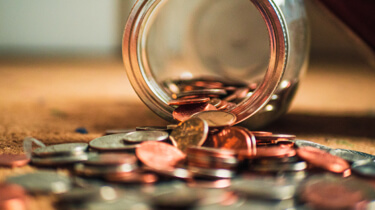How often do you use cash?
Maybe you don’t use it much at all. With credit and debit cards and so many different apps, you don’t have to use cash very often these days.
But can you imagine a country that’s completely cashless?
Well, read on!
A Country Without Cash
The country of Sweden has big plans: It will be a cashless society by 2023. Cash will no longer be accepted as payment—for anything!
Always first
When Sweden becomes cashless, it will be the first country in the world to do so, and that’s pretty special!
But did you know that it was also the first European country to start using banknotes in 1661?
Sweden definitely has a history of being first with money!
An easy switch
Becoming totally cashless won’t be a big change for the country. Right now, more than 80% of Sweden’s transactions are cashless. There are already some places where cash isn’t accepted, such as on public transport.
Besides debit and credit cards, many Swedish citizens use a mobile payment app called Swish. The app was created in 2012 by the six largest banks in Sweden.

The e-Krona
Because the country will no longer have cash currency (which is called the “Krona” in Sweden), the central bank wants to introduce digital currency: the “e-Krona.”
Is It a Good Idea?
A lot of people think that a cashless society is a great idea—and many others disagree.
So, what are their reasons?
Safety
The people who agree with a cashless society think that it will make the country safer. Since there will be no cash to steal, public safety will increase.
There will also be fewer crimes like bank robberies and the sale of illegal drugs and weapons.
No Privacy
Those who disagree are worried about privacy. There will be a computer record of everything a person buys—and that information might be misused.
What Do You Think?
Soon, Sweden will become the world’s first cashless society. Do you think it’s a good idea?
See Grammar explanation 
A suffix is a letter or group of letters added at the end of a word that change its form and meaning. For example:
——-
- Drive – driver / Write – Writer (From verb to noun)
- Happy – happiness / Kind – kindness (From adjective to noun)
- Home – homeless / Cash – cashless (From noun to adjective)
- Soft – soften / Short – shorten (From adjective to verb)
Sometimes when we add the suffix, the end of the original word changes. For example:
——
- Beauty, plenty + -ful: beautiful, plentiful (-y to -i + -ful)
- Crazy, lonely + -ness: craziness, loneliness (-y to -i + -ness)
- Sensible, flexible + -ity: sensibility, flexibility (-le to il + -ity)
- Remit, omit + -ion: remission, omission (-t to -ss + ion)
Some common suffixes and their meanings are:
——
- -able: capable of being (predictable, adaptable)
- -en: become (soften, fasten)
- -er: Someone who performs an action (teacher, dancer)
- -ful: Full or or remarkable at something (grateful, wonderful)
- -ion: Action or process of something (celebration, decision)
- -ity: State or condition of something (probability, equality)
- -less: without (cashless, fearless)
- -ly: in a certain way (bravely, honestly)
- -ment: Action or result of something (improvement, movement)
- -ness: State or quality (kindness, darkness)
- –sion: State or being (confusion, tension)
Share this Lesson 
Send it:

I think the world is changing for idea. Brazil recently started pay bills cashless, Brazil use the system in Bank, name’s system is PIX, is possible pay any person in app bank, transfer cash to people and companies, quick transaction and without fees.
It ´s a very modern decision. Why not? But it is maybe dangerous concerning the hacking.
I’m old fashioned , I don’t want to let my bank know where and for what I spent my money.
China is also trying to reduce physical cash and most of the payment are using the wechat payment.